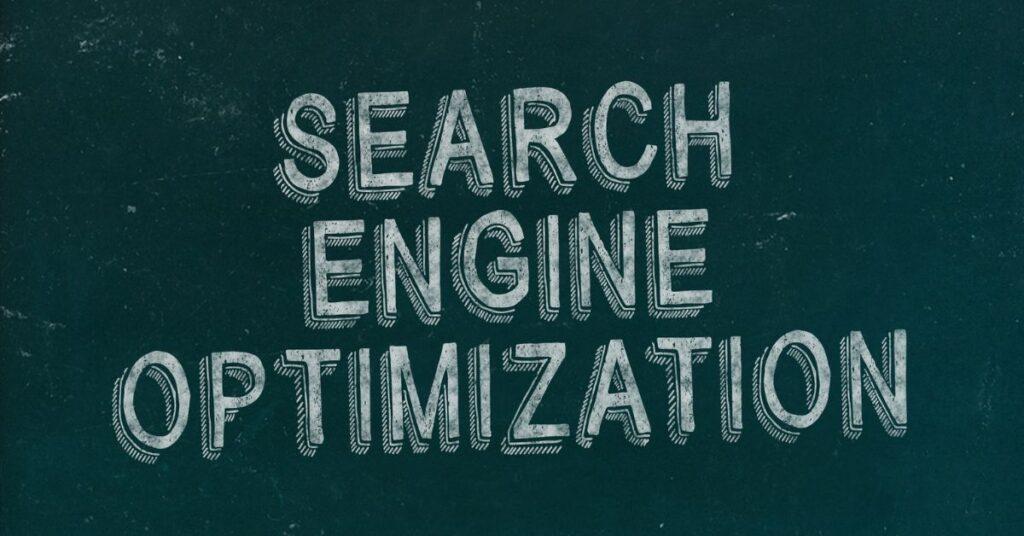Best SEO Agency for Plumbing Businesses

Get More Calls, Leads, and Customers With Proven Plumbing SEO Running a plumbing business is not easy. Between managing jobs, keeping customers happy, and handling your team, finding time to market your company can be hard. That is where the right SEO agency makes all the difference. We are a Houston-based SEO and Web Design agency, and we work with clients in every city across the United States. Whether you are a small plumbing team or a large service company, our job is to make your phone ring with new leads every day. Why SEO Matters for Plumbing Companies When people need a plumber, they go straight to Google. If your business is not on the first page, you are losing customers to competitors. With strong SEO, you can show up where your customers are searching and win more calls without spending extra on ads. Search engine optimization helps your plumbing company: Rank higher on Google for “plumber near me” and other local terms Show up in Google Maps results with your business listing Get more reviews and build trust online Turn website visitors into paying customers When done right, SEO becomes your best lead generation tool. It brings in steady traffic, qualified leads, and more jobs each month. Our SEO Services for Plumbing Businesses Every plumbing company is unique, so your SEO strategy should be too. At Gray Coyote Digital, we create a custom plan that fits your goals and location. Here are the main services we include in every plumber SEO plan: Keyword and Market Research We find the right words that your customers use when they search for plumbing services. Terms like “emergency plumber near me” or “water heater repair” bring high-intent leads. On-Page SEO Optimization We update your website with proper titles, meta descriptions, header tags, and image alt text. We also make sure every page loads fast and gives visitors a smooth experience. Local SEO and Google Business Profile Management Your Google Business Profile (also known as Google Maps listing) is one of your biggest assets. We optimize it with accurate information, photos, and service details so you appear in the map pack when people search nearby. Technical SEO and Site Health We check everything behind the scenes, from site speed to broken links. A healthy website makes it easier for Google to crawl and rank your pages. Content Creation and Service Area Pages We write and design helpful content that explains your services clearly. We also create service area pages so your business ranks in multiple nearby cities and suburbs. Link Building and Local Citations We build high-quality backlinks from trusted websites and local directories. These links tell Google your business is real, local, and trustworthy. Tracking and Monthly Reporting You will always know how your SEO is working. We provide clear reports showing keyword rankings, organic traffic, form submissions, and phone calls. Local SEO for Plumbing Businesses Local SEO helps plumbers get found by nearby customers fast. Most people search for “plumber near me,” and they often call the first few results on Google Maps. We focus on: Setting up and optimizing your Google Business Profile with the right categories, services, and photos. Ensure your business name, address, and phone number remain consistent across all online listings. Create local content and city pages to increase your plumbing company’s visibility in local searches. Help you collect and respond to customer reviews that build trust and improve rankings. Provide monthly tracking reports showing how your business appears in Google Maps and search results. With strong local SEO, your plumbing business can stand out in your community, reach more nearby customers, and stay ahead of your competitors. Real Results You Can Expect from Our Plumbing SEO Services When you work with us, you can expect clear and measurable results that make a real difference in your business. Our SEO strategies are built to bring more calls, more leads, and more paying customers to your plumbing company. Here’s what you can look forward to: Higher Google Rankings: We help your plumbing website move up in search results for top keywords like “plumber near me” and “emergency plumbing services.” More Calls from Google Maps: With strong local SEO and Google Business Profile optimization, you’ll appear in the map pack more often, bringing in steady phone calls. Consistent Lead Growth: As your visibility increases, you’ll see more form submissions, quote requests, and appointment bookings. Better ROI from Marketing: Our SEO focuses on quality traffic, so your investment brings real customers, not just clicks. Stronger Brand Reputation: By showing up everywhere customers search, your business will become the go-to name for plumbing in your area. Every plumber we work with receives a plan tailored to their specific city, service area, and growth objectives. With the right strategy, your business can grow month after month, powered by organic traffic that never stops working for you. How Our Process Works Working with us is easy and clear. Here is how we do it: Free Audit and Discovery Call – We analyze your current website and keyword rankings. Custom SEO Strategy – We create a plan tailored to your goals and location. Implementation – Our team optimizes your site, content, and listings. Tracking and Reporting – We send regular updates so you always see your progress. Continuous Improvement – We keep refining and improving your results every month. We also provide: Personalized service and fast communication Transparent pricing with no hidden fees Real data and easy-to-read reports We treat every client like a long-term partner, not just a project. Frequently Asked Questions How long does it take to see SEO results?Most plumbing businesses start seeing results within 3 to 6 months. SEO builds momentum over time, and the longer you stay consistent, the stronger your results become. How much does plumber SEO cost?It depends on your goals, location, and competition. We offer flexible plans that fit both small and large plumbing companies. Can you help if I don’t have a website yet?Yes,
Why Location Pages Are So Important for Local SEO

If your business wants to get found by people nearby, location pages are one of the best tools you can use. These pages help customers find your local offices, stores, or service areas. They also help your website show up on Google, Google Maps, and even on tools like ChatGPT and Perplexity. In this guide, you’ll learn why location pages matter, what to include on them, how to track results, and how to make them work for both search engines and AI tools. At Gray Coyote Digital, we’re a Houston-based web design agency that helps businesses across the U.S. create powerful websites that drive results. We work remotely, so we can help you no matter where you’re located. What Is a Location Page? A location page is a web page that focuses on a specific city or physical location. If your business has one office in Denver and another in Austin, each one should have its own location page. These pages give users the info they need to visit, call, or work with you. But more importantly, they give Google the signals it needs to rank your business in local search results. Why Location Pages Matter for Local SEO Local SEO is how your business shows up when someone searches for things like “dentist near me” or “limo service in Dallas.” Google wants to show the most relevant and nearby results first. That’s where location pages help. Here are a few reasons why they matter: They help you appear in the “local pack” (the map with 3 businesses). They help you rank for searches with the city name. They give customers clear information about your business. They improve trust by showing reviews and local content. They support your Google Business Profile (GBP) listing. If you want to rank better locally, a strong location page is one of the first steps you should take. What Every Location Page Should Include Not all location pages are the same. Some are short, others are long. But the best ones all include key elements that help both people and search engines. Let’s look at what your page should have. 1. Page Title and Meta Description Make sure each location page has a unique title and description. These show up in search results and help users click. Example: Title: “Pineview Dental – Dentist in Austin, TX” Meta Description: “Visit Pineview Dental in Austin, Texas. We offer family-friendly care, same-day appointments, and easy online booking.” 2. Heading with City Name The first big headline (H1) on the page should include the city or neighborhood. This helps both readers and search engines understand where your services are. 3. Name, Address, and Phone Number (NAP) Your NAP should be correct and consistent. It must match what’s on your Google Business Profile and other listings. Tip: Put the NAP in plain text and in your page footer too. 4. Embedded Google Map Add an interactive Google Map so users can easily get directions. This also signals to Google that you serve that area. 5. Local Content This is where you stand out. Include details like: Driving directions Nearby landmarks Parking info Local team bios Location-specific services Photos from that location The more unique, the better. 6. Reviews and Testimonials Add customer reviews that are specific to the location. If you have Google reviews for each office, link to them. 7. LocalBusiness Schema Markup Schema helps search engines understand your content better. Use LocalBusiness or Service schema on every location page. Include your business name, address, phone, hours, and more in the code. 8. Calls to Action (CTAs) Tell visitors what to do next. Add buttons to: Call your location Book an appointment Fill out a form Get directions How to Track Form Submissions and Phone Calls You can’t improve what you don’t track. So every location page should include tools that show how people are using it. Call Tracking Use dynamic number insertion (DNI) to show a tracking phone number based on where the visitor came from (like Google Search or Facebook). Tools like CallRail or Call Tracking Metrics can help you do this while keeping your NAP consistent in code. Set up goals in Google Analytics or GA4 to track how many calls you get from each location page. Form Tracking Add UTM tags to form buttons or use hidden form fields to track which location page a lead came from. This helps you see which city is driving more contacts. Use event tracking in Google Analytics to track clicks on phone links, maps, and CTAs. Where to Use Location Page URLs in Business Listings Once your pages are ready, it’s time to connect them to your local listings. Google Business Profile (GBP) Each GBP listing should link to its matching location page, not your homepage. Citations Sites like Yelp, Apple Maps, Bing Places, and industry directories should all use the right location page as the main website link. Make sure your NAP is exactly the same across all listings. Even a small difference can confuse search engines. Optimizing for ChatGPT, Perplexity, and AI Overviews AI tools are changing how people find local businesses. Tools like ChatGPT, Perplexity, and Google’s AI Overviews pull from trusted sources and structured data. So how do you make sure your location pages show up? Use Clear and Factual Information These tools love facts. List hours, services, staff names, service areas, and contact info clearly. Add FAQs Include local FAQs with short, clear answers. Then, add FAQ schema to help AI tools understand them. For Example: Q: Do you offer emergency dental care in Austin?A: Yes, we offer same-day emergency visits at our Austin office. Keep Content Consistent Make sure your location page, your GBP, and your citations all say the same thing. Inconsistent info can keep you out of AI summaries. Use Structured Data AI tools prefer pages that include schema markup. Add LocalBusiness schema and FAQ schema to help these tools pull your data. Other Local SEO Tactics That Support
SEO for Allied Health Professionals

Get Found. Help More People. Grow Your Practice. If you are a chiropractor, physical therapist, podiatrist, or any other type of allied health professional, it can be hard to stand out online. Most people search on Google before they choose a provider. So if your practice does not show up, you may be losing patients. That is where we come in. At Gray Coyote Digital, we help health professionals like you get found online. We are based in Houston, Texas, but we work remotely. That means we can help you no matter what city you are in. What Is SEO for Allied Health Professionals? SEO stands for Search Engine Optimization. It is the process of helping your website show up on Google when people search for your services. For example, someone may search for “physical therapist near me” or “chiropractor in [your city].” With the right SEO strategy, your clinic can show up in local search results, maps, and more. This means more people can discover your services, visit your website, and book an appointment. Why Your Practice Needs SEO Here are some simple reasons why SEO is important: Most people use Google to find local health services A higher spot on search results builds trust Local SEO helps you show up on maps More visitors to your website means more patient leads When your practice shows up at the top of search results, people see you as a trusted choice in their area. SEO Services We Offer for Allied Health Providers We offer a full set of SEO services to help you grow. Here is what we do: Keyword Research We find the words people type into Google when they need your services. Then we use those words on your website. On-Page SEO We improve your website’s titles, headings, and content. This makes your site more clear and more useful to both people and search engines. Local SEO We help you appear on Google Maps and local search. This includes setting up or fixing your Google Business Profile, adding your practice to trusted directories, and making sure your location info is correct. Technical SEO We make sure your website loads fast, works well on phones, and is secure. These things help your site rank better and give users a good experience. Content Creation We help you add helpful content like blog posts, service pages, and FAQs. When people get their questions answered, they are more likely to contact you. What You Can Expect When you work with Gray Coyote Digital, you can expect real results: More visitors to your website Better rankings on Google More calls and appointment requests Stronger presence on Google Maps These steps all help your practice grow and reach more people who need your care. Why Choose Gray Coyote Digital? We are not just another digital agency. Here’s why health professionals trust us: We understand how patients search for healthcare services We use only ethical and proven SEO methods We are based in Houston and serve all cities across the U.S. We care about helping you grow, not just selling a service We give clear updates and monthly reports so you know what’s working Whether you are just starting out or want to reach the next level, we are here to support your goals. Ready to Attract More Local Patients? If you are ready to grow your allied health practice, SEO is a smart first step. Let’s talk about how we can help you get found, book more appointments, and build trust online. Book a free consultation today. Let’s put your practice on the map. Shashitha Francis Founder & SEO Consultant Previous Post
Local SEO for Financial Advisors That Builds Trust and Brings in Clients

If you are a financial advisor, you know how important it is to build trust and get found by people in your area. When someone searches for “financial advisor near me,” your business should show up. That is where local SEO comes in. At Gray Coyote Digital, we help financial advisors like you get more local leads through search engines. We are a web design and SEO agency based in Houston, Texas, and we work remotely. So no matter where your office is, we can help you grow online. Why Local SEO Matters for Financial Advisors Your Clients Are Searching Nearby Most people look for a financial advisor close to home. They want someone they can meet and trust. If your business does not show up in local search, they will go to someone else. Build Trust Through Local Visibility When your business appears in Google Maps and local listings, people are more likely to trust you. They see your reviews, location, and services all in one place. Compete with Bigger Firms You do not need a huge marketing budget. Local SEO helps you stand out in your area, even if larger firms are nearby. What’s Included in Our Local SEO Services We focus on key areas to help your business show up in local searches and attract more clients. Google Business Profile Optimization We claim and update your Google Business Profile. This helps your firm appear in local results, especially on Google Maps. Local Keyword Targeting We find the right keywords people use when looking for financial help in your area. Then we add those keywords to your website content, titles, and descriptions. Citation and Directory Listings We list your business on trusted directories like Yelp, Bing, and financial directories. This builds your online presence and improves search rankings. Review Building Strategies People trust reviews. We help you ask happy clients for reviews and show them clearly on your website and Google profile. Website SEO and Technical Improvements We make sure your website loads fast, works on phones, and follows SEO best practices. If you need help from a developer, we can assist or guide your team. How We Help Financial Advisors Stand Out Locally We know your industry, and we build strategies that fit. Industry-Specific SEO Strategies We avoid generic tactics. Instead, we focus on financial services and follow the rules around content, privacy, and trust. Custom Reporting and Local Tracking You will see how your site is performing with clear reports. We track local rankings, traffic, and calls. Compliance-Aware Content Practices We make sure your site content is helpful and meets common compliance needs. That way, you stay visible and safe. Real Results You Can Expect from Local SEO When you work with Gray Coyote Digital, you can expect results that help your business grow. We focus on: Higher local rankings – We help you show up in Google Maps and local search when people look for a financial advisor near them. More website traffic – With the right keywords and content, more local visitors will find your site. Increased phone calls and form fills – We make it easier for people to contact you directly from search results. More 5-star reviews – Our review strategy builds trust with new visitors by showing off your client success stories. Better local visibility – You will appear in the places people search most, like Google, Bing, and key financial directories. Our goal is simple: help you get found, build trust, and turn visitors into clients. Why Choose Gray Coyote Digital? We understand the unique needs of financial advisors. At Gray Coyote Digital, we combine deep industry knowledge with proven local SEO strategies to help you grow. Here’s why financial professionals choose us: We Know the Financial IndustryWe understand compliance concerns and know how to market your services while keeping content accurate, professional, and trustworthy. Tailored SEO StrategiesEvery advisor is different. We create custom plans based on your goals, location, and ideal clients. Full-Service SupportFrom Google Business Profile optimization to website updates, we handle it all. Need technical help? Our team can take care of that too. Transparent ReportingYou’ll get easy-to-read reports that show what’s working. No fluff. Just real data and results. Houston-Based, Nationwide ServiceWe’re a Houston-based web design and SEO agency, but we work remotely. That means we can serve financial advisors in any city across the U.S. When you choose Gray Coyote Digital, you’re not just hiring a team, you’re gaining a partner focused on your success. Ready to Attract More Local Clients? If you’re ready to grow your financial practice and show up when people search for a financial advisor in your area, local SEO is the next step. Let us help you get found and build trust. Book your free consultation now or Schedule a Strategy Call Shashitha Francis Founder & SEO Consultant Previous Post
Best SEO for Physicians in Houston

Grow Your Practice with Expert Medical SEO Services Are you a doctor or medical professional in Houston looking to attract more patients online? At Gray Coyote Digital, we help physicians like you get found on Google, stand out from the crowd, and build trust with your community. Our SEO services are built just for healthcare providers. We are based in Houston, but we work remotely. That means we can help doctors in any city across the U.S. Why Houston Physicians Need SEO More and more people are using Google to find local healthcare providers. If your practice does not show up in search results, you could be losing patients to competitors. Here are a few reasons why SEO is important: Houston has many medical practices, so standing out is hard without a plan. Patients trust websites that appear at the top of search results. A strong SEO strategy helps you get seen, get clicks, and get appointments. What Our SEO Services Include We offer full SEO solutions made just for doctors. Our services help you show up in search, attract more traffic, and get more patients. Here’s what we do: Keyword Research We find the best search terms that patients use when looking for services like yours. Website Optimization We improve your website’s title tags, headers, and page structure so Google understands what you offer. Local SEO We help your practice show up on Google Maps and in searches like “doctor near me” or “family physician in Houston.” Content Creation We write helpful blog posts and service pages that answer patient questions and build trust. Technical SEO We fix errors, improve page speed, and make sure your site runs smoothly. Local SEO for Houston Doctors If you want more patients in your area, you need local SEO. We focus on: Setting up and improving your Google Business Profile Adding your practice to local directories Using Houston-based keywords like “pediatrician in The Heights” or “urgent care near Sugar Land” Local SEO helps people in your city find you faster and easier. What You Can Expect from Our SEO Services When you work with us, you can expect real growth for your medical practice. Our SEO strategies are built to bring clear, measurable results. Here’s what we aim to deliver: More website traffic from patients searching for care in your area Higher rankings on Google for the services you provide Increased appointment requests through phone calls and online forms Better visibility on Google Maps and in local search results Stronger online reputation through review strategies and content Every month, we send you an easy-to-understand report so you can track your progress and see how your practice is growing. Why Choose Gray Coyote Digital? There are many SEO companies out there. But here is why doctors trust us: We know how medical SEO works We create a custom plan for every client We stay up to date with the latest Google changes We offer clear reports and real support We are based in Houston and understand the local market And even if you’re not in Houston, we can still help. We serve clients across the country. Get Started Today Want to grow your practice? We make it easy to get started. Get your free SEO audit now. Let us take a look at your website and tell you where you can improve. We are here to help your medical practice succeed online. Contact us today and let’s grow your visibility, reach more patients, and boost your practice. Shashitha Francis Founder & SEO Consultant Previous Post
How Long Does Keyword Research Take? A Deep Dive into the Process

Keyword research typically takes between 10 to 23 hours, depending on factors such as project scope, industry competition, and tools used. For larger websites or highly competitive industries, the process may take several days. Efficient use of SEO tools and a clear strategy can help speed up the research phase. Keyword research is the foundation of any successful SEO strategy. It helps businesses understand what their audience is searching for and how to structure content to rank effectively in search engines. However, many wonder how long this process takes. The truth is, that the time required for keyword research depends on various factors, including the depth of research, industry competition, and the tools used. In this article, we will break down the keyword research process and provide insights into the time investment needed for each step. Understanding Keyword Research Before diving into the timeline, it is important to understand keyword research. This process involves identifying relevant search terms, analyzing competition, assessing search volume, and determining the intent behind each keyword. It is not just about finding words with high search volume but also about selecting keywords that align with your business goals and have a realistic chance of ranking well. Factors That Affect Keyword Research Time The duration of keyword research varies based on multiple factors: 1. Project Scope A small website targeting a niche audience may require less research time than a large e-commerce platform with thousands of products. Broader topics with competitive keywords demand more in-depth analysis and strategic selection. 2. Industry Competition Highly competitive industries, such as finance, health, and technology, require extensive research. If many businesses are already ranking for your target keywords, you will need to dig deeper to find less competitive, high-value alternatives. 3. SEO Tools Used Tools like Ahrefs, SEMrush, or Google Keyword Planner can speed up the process. These tools provide insights into search volume, keyword difficulty, and related terms, helping to streamline the research phase. 4. Experience Level A seasoned SEO expert can complete keyword research faster than a beginner. Experienced professionals understand how to filter through data efficiently and recognize valuable keywords quickly. Step-by-Step Breakdown of Keyword Research Time Step 1: Brainstorming and Initial Research (1 to 4 Hours) The first step is brainstorming ideas based on your niche. This involves identifying topics that align with your business and audience. You can use competitor analysis and Google’s autocomplete suggestions to gather initial keyword ideas. Step 2: Using SEO Tools for Keyword Discovery (2 to 5 Hours) Once you have a list of potential keywords, SEO tools can help refine the selection. This step involves: Checking search volume and keyword difficulty Finding related terms and long-tail keywords Identifying search intent (informational, navigational, or transactional) Depending on the depth of the research, this phase can take several hours, especially if you are analyzing multiple keywords across different categories. Step 3: Competitor Analysis (3 to 6 Hours) Analyzing competitors helps understand which keywords are driving traffic to their websites. This involves: Checking their top-ranking pages Identifying gaps in their content Finding keywords they are missing that you can target Competitor analysis is essential in highly competitive industries, as it provides insights into what is already working and where opportunities exist. Step 4: Organizing and Prioritizing Keywords (2 to 4 Hours) After gathering keyword data, it is time to categorize and prioritize them based on relevance, search volume, and ranking difficulty. Creating keyword clusters and mapping them to specific pages or content strategies ensures a structured approach to implementation. Step 5: Finalizing Keyword Strategy and Implementation Plan (2 to 4 Hours) The last step is finalizing the keyword list and integrating it into the content strategy. This includes: Assigning keywords to blog posts, landing pages, and product pages Planning a content calendar Identifying opportunities for internal linking Total Estimated Time for Keyword Research Adding up the time required for each step, keyword research can take anywhere from 10 to 21 hours, depending on the complexity of the project. For larger websites or highly competitive industries, this timeframe can extend to several days. Can Keyword Research Be Done Faster? For those who need to speed up the process, here are some tips: Use AI-powered SEO tools to automate data analysis Focus on long-tail keywords with lower competition Utilize pre-made keyword lists from industry experts Set a clear goal to avoid over-researching unnecessary keywords Keyword research is not a one-time task but an ongoing process. While the initial research can take anywhere from 10 to 23 hours, continuous monitoring and updates are necessary to stay ahead of search trends and competitors. Investing time in thorough keyword research ensures long-term SEO success and improves the chances of ranking higher on search engines. Whether you are a beginner or an expert, understanding the factors that influence keyword research time will help you plan effectively and achieve better results. If you are looking for expert SEO services to streamline your keyword research and boost your website rankings, Gray Coyote Digital is here to help. With advanced SEO tools, data-driven insights, and a customized approach, Gray Coyote Digital delivers strategies that drive sustainable online growth. Whether you need keyword research, content optimization, or full-scale SEO management, their solutions are designed to improve search visibility and maximize conversions. Shashitha Francis Founder & SEO Consultant Previous Post
What is Crawling in SEO? A Simple Explanation for Website Owners

Crawling is how search engines like Google explore the internet. Have you ever wondered how Google finds your website? It’s like having a friendly robot that reads all the pages on the internet. These robots help search engines find and organize web pages so people can search for them easily. What is Crawling in SEO? Before diving into crawling, it might help to understand the basics of SEO. Check out our article on “What is SEO?” to get started. Crawling is when search engines like Google send out special internet robots (we call them “bots” or “spiders”) to read websites. Think of these bots as curious readers who go from page to page on your website, looking at everything you’ve written. These bots are like librarians. Just as librarians need to know about all the books in a library, search engine bots need to know about all the pages on your website. They do this by following links from one page to another, just like you might click links when browsing the internet. It’s important to know that crawling is different from how Google ranks your website. Crawling is just about finding and reading your pages. It’s the first step in getting your website to show up in Google searches. Here’s how crawling is different from other steps: Crawling: Bots explore the website. Indexing: The website gets added to the search engine’s library. Ranking: Search engines decide which pages show up first when you search. How Crawling Works Crawling starts with a list of websites. Bots look at these websites and follow links to find more pages. Let’s break down how crawling happens: First, the search engine bot visits your website’s main page or home page Then, it looks for links to other pages on your site The bot follows these links to find more pages It saves information about what it finds on each page To help these bots, websites have two special tools: An XML sitemap file: Think of this like a map that shows all the important pages on your website Example of an XML sitemap file A robots.txt file: This is like leaving instructions for the bots about which parts of your website they can and can’t visit Example of a robots.txt file Bots have a ‘Crawl Budget,’ which limits the number of pages they can visit at once. Websites should make it easy for bots to find important pages within that budget. Why Crawling is Important Crawling matters because if search engines can’t read your website, they can’t show it to people in search results. It’s like having a great store that nobody can find because it’s not on any map! When search engines crawl your site, they can: Find your newest content quickly. See when you change or update old pages. Make sure all your pages can be found. If they can’t crawl a page, it won’t show up in search results. Check how helpful your site is, which can help it rank higher. Crawling is just the first step. You also need to make your site easy to read and useful for it to rank well. Making Your Website Easy to Crawl Here are some simple ways to help search engines crawl your website better: Add an XML Sitemap: Create a clear sitemap to guide bots to all your pages. Check Your Robots.txt File: Make sure important pages aren’t blocked. Link pages together: Make sure all your pages link to each other in a way that makes sense. Speed Up Your Website: Slow sites are harder for bots to crawl. Fix Broken Links: Broken links stop bots from exploring your site properly. Create Easy-to-Read URLs: Create clear website addresses (URLs) that people can understand Avoid Duplicate Content: Bots might get confused if you have the same content on multiple pages. What You Should Do Next Now that you know about crawling, here are some things you can do: Check if Google can find all your important pages Make sure your website loads quickly Fix any broken links on your site Create an XML sitemap if you don’t have one Keep in mind, that helping search engines crawl your website is the first step to showing up in search results. Take time to check your website regularly and fix any problems you find. Common Questions Q: How do I know if Google is crawling my site? A: You can use Google Search Console, a free tool that shows you how Google sees your website. Q: How often will search engines crawl my site? A: It depends on how often you update your site and how important search engines think it is. Popular sites get crawled more often. Q: What if I find crawling errors? A: Don’t worry! Most crawling errors are easy to fix. Start by checking for broken links and making sure your sitemap is up to date. Remember, crawling is what helps search engines find and understand your website. Without it, your site won’t show up in search results. To make crawling simple and fast, keep your website organized, fix errors, and follow best practices. This will help your site rank higher and attract more visitors. Also, take a look at our article on What is SEO to understand the basics of search engine optimization. Shashitha Francis Founder & SEO Consultant Previous PostNext Post
What is SEO? A Beginner’s Guide to Search Engine Optimization

Understanding SEO: The Basics Search Engine Optimization (SEO) is like a roadmap for helping websites become more visible and attractive to search engines like Google, Bing, and Yahoo. Imagine the internet as a massive library, and search engines as librarians trying to find the most relevant, helpful books for people who ask questions. SEO is the process of making your website the book that gets recommended first. At its core, SEO is about improving your website’s visibility in organic (non-paid) search results. When someone searches for a topic related to your business or content, SEO helps ensure your website appears as high as possible in the search results. With billions of searches happening every day, showing up higher in search results can make a big difference for a business. It helps attract more eyes to your products, services, or content, giving you a better chance to connect with your audience. How Search Engines Work To understand SEO, you need to know how search engines operate. They use complex algorithms to: Crawl the internet, discovering new and updated content Index content by categorizing and storing information Rank content based on relevance, quality, and hundreds of other factors These algorithms work behind the scenes to give users the most accurate and helpful answers to their questions. Think of it like a sophisticated sorting system that aims to match user queries with the most beneficial content possible. The Goal of SEO The main purpose of SEO is to help your website get noticed online and reach the right audience. By making your site work well for search engines and visitors, SEO increases your chances of drawing in quality traffic and achieving your business goals. Key Components of SEO On-Page SEO: Optimizing Your Content On-page SEO focuses on what you can control directly on your website: Content Optimization Perform thorough keyword research to discover the terms and phrases your audience commonly uses to search for your products or services. Create high-quality, relevant content that answers users’ questions Write clear, engaging content that provides real value. Organize your content with short paragraphs, bullet points, and clear subheadings to make it easier to read and navigate. Use descriptive title tags and meta descriptions that accurately represent your content. HTML Elements Use header tags (H1, H2, etc.) to organize your content in a clear hierarchy, making it simpler for users and search engines to find their way around. Create internal links to related content within your website to help users navigate your website and share authority across pages. Optimize images with descriptive file names and alt text for accessibility. Also, compress them to boost loading speed and improve your website’s overall performance. Implement schema markup to help search engines understand your content better. Technical SEO: Behind-the-Scenes Optimization Technical SEO ensures your website is easy for search engines to understand and use: Website Performance Ensure fast page load speeds to improve user experience. Make your site mobile-friendly and work seamlessly on mobile devices. Use secure HTTPS connections to protect data with a secure connection. Create XML sitemaps to help search engines navigate your site Crawlability and Indexing Use robot.txt files to guide search engine crawlers on which parts of your site search engines can crawl. Use canonical tags to avoid duplicate content issues by indicating the preferred version of a page. Ensure each page provides unique value. Regularly check and fix broken links to maintain site quality. Off-Page SEO: Building Your Website’s Reputation Off-page SEO is about building your website’s credibility and authority: Link Building Domain Authority is a measure of your site’s credibility and trustworthiness. Earn quality backlinks from reputable websites to boost domain authority. Engage in guest posting on other sites to reach new audiences and gain backlinks. Leverage social media platforms to amplify your content and build brand awareness. Brand Reputation Encourage positive reviews on platforms like Google and Yelp. Maintain an active social media presence and engage with audiences to build trust and loyalty. Generate positive brand mentions across the web and maintain a positive online reputation. SEO Strategies and Best Practices Keyword Strategy Not all keywords are created equal. Understanding different types can help you compose more effective content: Short-tail keywords: Broad, generic terms but highly competitive (e.g., “digital marketing”). Long-tail keywords: More specific phrases and less competitive (e.g., “how to improve small business digital marketing”). Semantic keywords: Related terms that provide context to the main keywords. Content Strategy Develop a robust content plan: Content Plan Content Calendar: Organize content creation and publishing schedules. Evergreen vs. Trending Content: Balance timeless content with current trends. Content Optimization Cycles: Continuously update and improve existing content. Content Types Blogs: Share insights, tips, and updates. Pillar Content: Comprehensive, in-depth guides on core topics. Video Content: Engage users with visual storytelling. Infographics: Simplify complex information into visually appealing formats. Measuring SEO Success To know if your SEO efforts are working, track these key metrics: Key Performance Indicators (KPIs) Total Visitors: Track the number of users arriving via organic search. Traffic Sources: Understand where your visitors are coming from. Bounce Rate: Monitor the percentage of users who leave after viewing a single page. Keyword Rankings: Measure how well your target keywords perform. SERP Position Tracking: Observe your ranking on search engine results pages. Visibility Index: Gauge your site’s presence relative to competitors. Essential Tools Google Analytics: Track user behavior and site performance. Google Search Console: Monitor search performance and fixing indexing issues. Third-Party SEO Tools: Use platforms like Ahrefs, SEMRush, or Moz for advanced insights. Tracking and Reporting Methods: Set up reports on platforms like Looker Studio and regularly review reports to refine strategies. Emerging SEO Trends The SEO landscape is constantly evolving. AI and Machine Learning in Search: Understanding how algorithms like Google’s RankBrain influence rankings. Voice Search Optimization: Optimizing content for voice queries by focusing on natural language and local searches. Video SEO: Enhancing video content to appear in search results. Local SEO: Targeting local audiences through Google My Business and localized content. Mobile-First Indexing: Prioritizing
The Power of Reviews and Testimonials: How They Impact SEO, Customer Trust, and Conversions

Customer reviews and testimonials aren’t just helpful feedback—they’re powerful marketing tools. With a significant impact on SEO, customer trust, and conversion rates, reviews give potential clients the confidence they need to choose a service or product. In this blog, we’ll explore why reviews matter, how to use them effectively, and provide strategies to leverage testimonials across digital platforms. How Reviews Impact SEO, Customer Trust, and Conversions Boosting SEO: Reviews have a measurable impact on search engine rankings, especially for local SEO. According to Moz’s Local Search Ranking Factors, customer reviews are among the top signals Google uses to determine relevance and trustworthiness. When reviews include relevant keywords and reflect recent customer experiences, search engines recognize them as valuable content, which can improve your site’s visibility. This boost is crucial in competitive industries where brands strive to stand out (Moz, Local Search Ranking Factors). Building Customer Trust: Reviews are a form of social proof. A survey by BrightLocal reveals that 92% of consumers read online reviews, with 84% trusting them as much as personal recommendations. By showcasing positive reviews on well-known platforms like Google My Business and Yelp, brands can enhance their credibility and establish a trustworthy reputation, leading to stronger customer relationships (BrightLocal, Local Consumer Review Survey). Increasing Conversions: A well-placed review or testimonial can be the final nudge potential customers need to make a purchase. Research from the Spiegel Research Center found that displaying reviews can increase conversion rates by up to 270%, especially for first-time visitors. Testimonials on product or service pages can reduce buying hesitation by affirming the product’s quality, giving customers the reassurance they need to proceed (Spiegel Research Center, The Influence of Online Reviews on Purchase Decisions). Tips for Requesting and Responding to Customer Feedback Requesting Feedback: Make Requests Personal and Timely: Asking for reviews at the right moment—such as soon after a successful purchase or positive interaction—significantly boosts response rates. Tailoring the request with specific details makes the experience feel personal and valued. According to Forbes, follow-up requests that include clear, direct links to review platforms make it easier for customers to leave feedback (Forbes, How to Request and Respond to Customer Reviews). Responding to Reviews: Responding to customer feedback, both positive and negative, shows that you’re attentive and invested in your customers. Harvard Business Review research found that businesses that respond to reviews often see improved overall ratings over time. A thoughtful, empathetic reply to a negative review can also demonstrate professionalism and care, helping to turn potential setbacks into opportunities for improvement (Harvard Business Review, Replying to Customer Reviews Can Improve Ratings). Strategies for Showcasing Testimonials Across Websites, Social Media, and Email Marketing Website Integration: Strategic Placement: Place testimonials on key areas of your website, like the homepage, product pages, or checkout pages. Crazy Egg suggests that high-conversion pages are ideal for showcasing testimonials since social proof here can directly impact purchasing decisions. Using photos or even short video clips can make testimonials more engaging and credible (Crazy Egg, How Testimonials Improve Conversion Rates). Social Media Showcasing: With 54% of people using social media to research products, according to Sprout Social, posting testimonials on social platforms is an effective way to extend your reach. Share client reviews in posts, stories, and carousel formats for visual engagement. You can even use video snippets to showcase customer feedback authentically, reinforcing your brand’s trustworthiness and broadening visibility (Sprout Social, Social Media and Consumer Behavior). Email Marketing: Testimonials are powerful additions to email campaigns, especially welcome emails and nurture sequences. Adding customer feedback can increase click-through rates and build trust early in the customer journey. HubSpot notes that featuring client experiences in email campaigns, such as a “testimonial of the month,” keeps testimonials fresh and relevant, creating a personal connection that can increase conversion rates (HubSpot, How Testimonials Boost Email Marketing Conversion Rates). Final Thoughts Customer reviews and testimonials are crucial for enhancing your brand’s online presence, building trust, and driving conversions. Integrating these practices into your digital marketing strategy can boost SEO performance, enhance credibility, and foster long-lasting customer loyalty. At Gray Coyote Digital, we specialize in maximizing the value of customer feedback across web, social, and email platforms to create a stronger brand presence. Ready to leverage the power of reviews for your brand? Sources Local Search Ranking Factors – MOZ Local Consumer Review Survey – BrightLocal How Online Reviews Influence Sales – Spiegel Research Center How To Ask Customers For Reviews – Forbes Replying to Customer Reviews Results in Better Ratings – Harvard Business Review Shashitha Francis Founder & SEO Consultant Next Post
